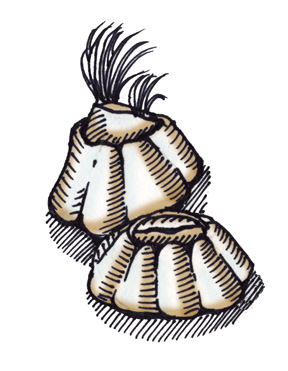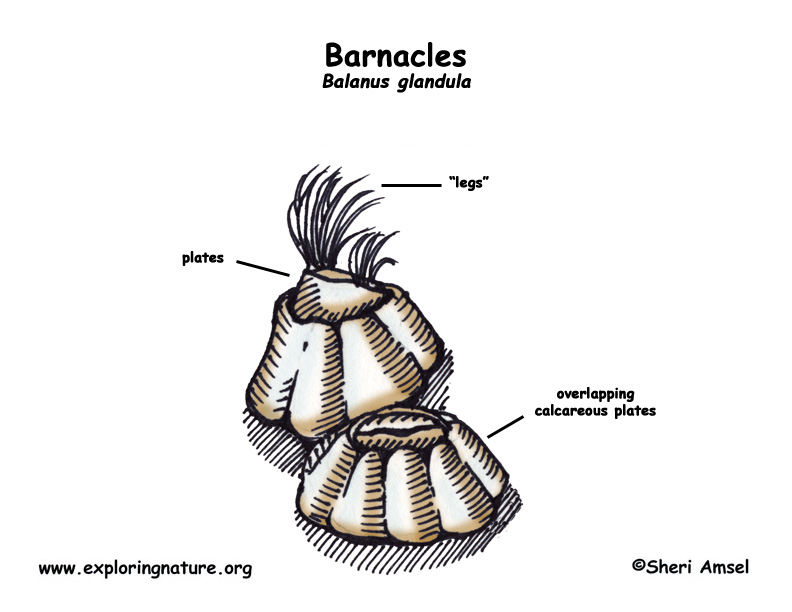

They are found on the Pacific coast of North America, from Alaska to Mexico.
They live in tidal pools on mussels, rocks and pier pilings.
They are less than 1 inch long (up to 20 mm). Their shell is formed by overlapping plates.
Once they settle onto a spot, they cannot move again.
They are filter feeders. They send out feathery “legs” into the water at high tide to catch plankton as it floats by. The “legs” push the plankton down into their opening (mouth). They tease the plankton away from the legs and they reach up for more. They sometimes accidentally catch and eat their own young.
They release eggs into the water, which hatch into floating larvae.
Kingdom: Animalia
Phylum: Arthropoda
Subphylum: Crustacea
Class: Maxillopoda
Subclass: Thecostraca
Infraclass: Cirripedia
Superorder: Thoracica
Order: Sessilia
Family: Balanidae
Genus: Balanus
Species: B. glandula
When you research information you must cite the reference. Citing for websites is different from citing from books, magazines and periodicals. The style of citing shown here is from the MLA Style Citations (Modern Language Association).
When citing a WEBSITE the general format is as follows.
Author Last Name, First Name(s). "Title: Subtitle of Part of Web Page, if appropriate." Title: Subtitle: Section of Page if appropriate. Sponsoring/Publishing Agency, If Given. Additional significant descriptive information. Date of Electronic Publication or other Date, such as Last Updated. Day Month Year of access < URL >.
Amsel, Sheri. "Barnacle (Balanus)" Exploring Nature Educational Resource ©2005-2024. December 13, 2024
< http://www.exploringnature.org/db/view/541 >

